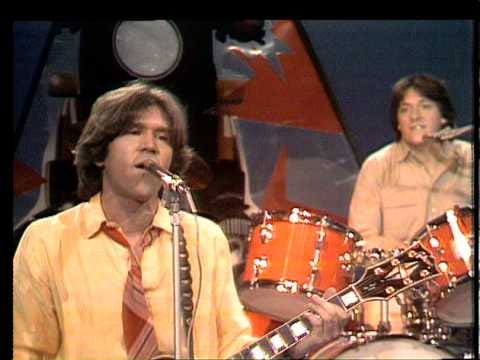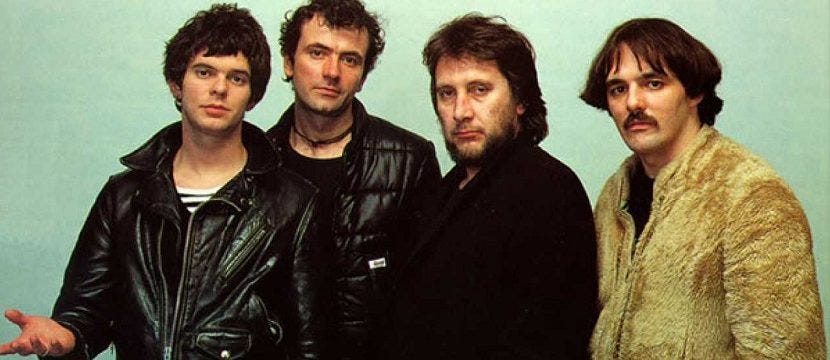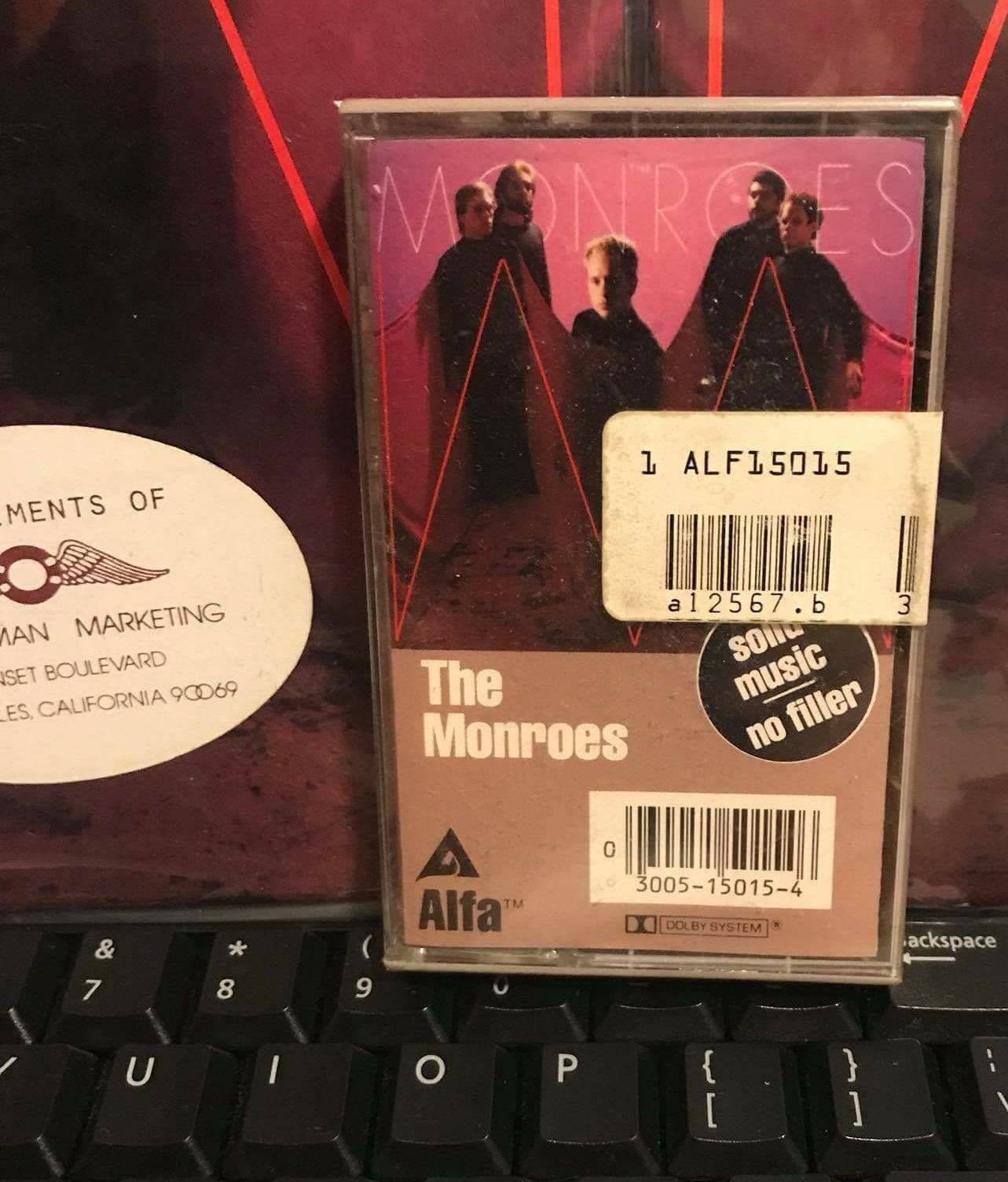Tune Tag #69 with Dave Tomar of "Music Influence": The Beat, Monroes, Stranglers, The Jam, Phil Collins, Joe Jackson, Anita Dobson
Some classic rock and a little new wave converge for a surprising finish featuring a rock'n'roll husband'n'wife team many of us were unaware of! Plus, 1982 is our year of the day!📅
Greetings, Dave! TAG! You’re IT!
Tune Tag welcomes Dave Tomar of !
I’m a twice-published author, and a 25-year survivor of freelance writing. But, my true obsession is music. I’m an incurable vinyl junkie, a lover of history, and a man rapidly approaching what could charitably be described as vintage.
I channel these comorbidities into my Substack: Music Influence is primarily a storytelling forum. I’m obsessed with uncovering the connections, coincidences, and otherwise astonishing facts behind the bands, records, and tunes we know and/or love.
Last week, we were pleased to share tunes, turkey’n’trimmin’s with Andy of :
Next week, tune in to catch of Ryan’s Reviews!
Dave’s song #1 sent to Brad: The Stranglers, “Golden Brown,” 1982
Brad’s response: “Golden Brown” reared its tuneful head during Tune Tag #17 with Matty C a year ago. The song was produced by Steve Churchyard (and mixed by Tony Visconti…EMI/UK, The Stranglers’ label, directed Visconti to mix each of La folie’s songs as a potential single); Churchyard also co-engineered the Three’s a Crowd album by The Tarney/Spencer Band in 1978, which was produced by David Kershenbaum (which explains my next song choice), as was Stephen Michael Schwartz’s debut RCA Records album in 1974.
Dave’s rationale: It’s peak autumn here on the East Coast, so when Brad invited me to do a Tune Tag, this was the first song that sprang to mind!
To me, the haunting harpsichord and dreamy vocals feel like leaves falling on a misty autumn afternoon. Of course, it’s totally about heroin but…
“Golden Brown” was the 2nd single from their 6th album (La folie--1981) for this genre-defying band born out of Guildford, Surrey. It was the band’s biggest hit, reaching #2 in the UK in 1982. I was two years old at the time.
I personally didn’t hear it until its memorable use in Guy Ritchie’s Snatch—a 2000 film whose soundtrack is, criminally, without a vinyl release. As the story goes, The Stranglers intentionally conceived this tune to defy the punk pigeonhole. EMI—their label at the time—hated it. (I always find it remarkable that people with dysfunctional earholes become music execs…but, I digress).
I find “Golden Brown” transporting, which I suppose means it does a pretty good job at simulating heroin!
Brad’s song #1 sent to Dave: Tarney/Spencer Band, “It’s Really You,” 1978

Brad’s rationale: “It’s Really You” was written by Trevor Spencer and Alan Tarney, along with veteran hit songwriter, Tom Snow.
Two years later, Tarney, himself, produced The Barbara Dickson Album (Columbia Records/U.S., Epic worldwide) for the Scottish singer, and proceeded to give Barbara a double-time dance beat to “It’s Really You”:
I asked Substack’s resident disco expert,
of The Twelve Inch, about his real time interaction with this Dickson disco turn: “I had heard the song before, because it was the follow-up to her Tarney-composed “January-February,” which was a minor Benelux (Belgium, Netherlands, Luxembourg) hit in 1980, while getting to #11 in UK.“I remember listening a lot to Dutch radio at that time, and one of the daytime jocks was an absolute fan of the Alan Tarney production, so he played it a lot. Never heard the original so I’m curious to find out. Tarney’s production plays the real leading role here. It’s sleek and impressive, delivering an uptempo pop vibe rather than being designed as a dance track. A key indicator is that they didn’t release a 12-inch version—a rarity back then, as even ballads often got a 12-inch release!”
Dave’s response: When Brad shared The Tarney/Spencer Band’s “It’s Really You,” it was the first time I’d heard it (or of the artist, to be honest…it got to #86 on the U.S. singles chart in 1978). That got me thinking about power pop in general. I always felt that one of the distinguishing features of this subgenre is that so many amazing songs which should have been huge hits somehow never were. So many absolute gems from this era (late ‘70s/early ‘80s) just collect dust in obscurity.
My next song (The Monroes’ “What Do All the People Know”) falls into that category. So hooky. Instantly familiar. Perfectly of its time but gracefully aged. Still, somehow, a minor footnote at best.
It managed to make a brief climb to #59 on the U.S. charts upon release. But, the San Diego-based band hit a huge snag when their Japanese label–Alfa–decided to shut down its U.S. operations. Stranded and without promotional backing, the band’s debut EP and single quickly faded from view. By 1988, the Monroes had splintered.
This tune, at least, shoulda been so much bigger. It’s one of my favorites, and an example of why power pop may be the ultimate hard-luck genre:
Dave’s song #2: The Monroes, “What Do All the People Know,” 1982

The Monroes performing “What Do All the People Know”-The Merv Griffin Show, 1982. The song was written by bassist, Bob “Monroe” Davis, and was their only single:
Brad’s response: This was a pleasant surprise! I’ve never heard of this San Diego-based band and this 1982 song. Upon hearing their name, I thought “The Monroes” may be a ‘50s-era bluegrass band! Without a personal point of reference, though, this could be a toughie to find a song/artist to link to!
They were on independent Alfa Records, which was a Japanese label that opened a short-lived U.S. affiliate based in L.A. Much to The Monroes’ chagrin, Alfa only had its domestic (U.S.) offices open from December 1980-July 1982.
Monroes keyboardist, Eric Denton (far left in above video), revealed all in a February 2010 blog post:










